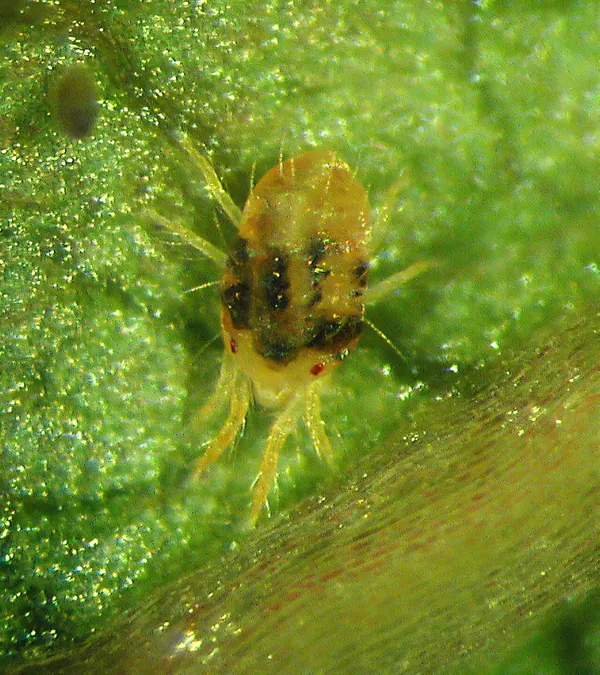
A Game Changer in Raspberry Farming: How Simple Water Sprinkling Keeps Spider Mites at Bay!
2024-11-07
Author: Siti
Raspberry growers face numerous hurdles, particularly pests like the two-spotted spider mite (Tetranychus urticae), a notorious adversary that can wreak havoc on crops. As the agricultural community seeks to reduce reliance on chemical pesticides, innovative and environmentally friendly control methods are paramount. Exciting research from NIBIO reveals that a simple solution—sprinkling plants with water—might just do the trick in keeping spider mites at bay.
These diminutive arachnids are not just a menace to raspberries; they also pose significant threats to strawberries and other crops. Feeding on leaves, they lead to wilting, stunted growth, and even premature leaf drop, presenting substantial economic losses for farmers.
Dr. Nina Trandem, a leading researcher in this groundbreaking study, emphasizes the growing challenges faced by growers, stating, "Fewer and fewer chemical agents are available, and biological control solutions don’t always yield desirable results." This predicament highlights the urgency for finding alternative methods that are both effective and sustainable.
An Innovative Approach: The Water Sprinkling Experiment
In a quest to battle spider mites without resorting to chemicals, researchers at NIBIO set up an intriguing experiment. They designed small chambers within a controlled tunnel where raspberry plants were regularly doused with water through sprinkler systems. In stark contrast, nearby plants served as control groups, untouched by water sprays.
“This chamber setup required creativity and precision,” recalls chief engineer Vinh Hong Le, who oversaw the design and construction. “We had to ensure the controls were protected from sprays while still making them accessible for monitoring.”
Amusingly, the initial design faced challenges when wind swept away the first prototypes. “The first one ended up 200 meters away!” Le laughs, but now the chambers are securely anchored.
Positive Results: A Significant Reduction in Spider Mite Populations
The study, which included an intern from France, Clément Follut, gained valuable insights throughout the summer as he diligently recorded data on spider mite infestations. Interestingly, the results were nothing short of promising—plants that were regularly sprinkled with water experienced a staggering 40% to 50% reduction in spider mite populations compared to the control plants.
"These results were akin to using a miticide just once—an impressive feat for such a simple method," comments Trandem. “Spider mites do not thrive in moist conditions, and this treatment also creates a conducive environment for predatory mites, which are natural enemies of the pests."
However, it’s important to note that while this approach significantly reduces mite populations, it does not entirely eliminate them. “Our goal is to maintain low enough levels to prevent noticeable damage to the plants,” Trandem explains.
Investigating Innovative Water Uses: The Plant Sauna
Beyond sprinkling, NIBIO is also exploring other means of using water to combat pests. One such initiative is the RobustRubus project, which examines the effects of steam treatment in a unique setup known as the Plant Sauna, developed by the Norwegian-Dutch company Moleda AS.
Professor Arne Stensvand, who studies fruit and berry diseases, has reported remarkable success using the Plant Sauna to combat various diseases and pests, particularly in strawberries. For raspberries, they are testing its efficacy against soil-borne issues like black and red root rot.
As the agricultural world grapples with pest management, these fresh approaches hint at a future where nature-friendly solutions reign supreme, ensuring healthier crops and sustainable practices. Stay tuned—this research could signal a revolution for farmers everywhere, helping to save crops and the environment, one sprinkle at a time!



 Brasil (PT)
Brasil (PT)
 Canada (EN)
Canada (EN)
 Chile (ES)
Chile (ES)
 España (ES)
España (ES)
 France (FR)
France (FR)
 Hong Kong (EN)
Hong Kong (EN)
 Italia (IT)
Italia (IT)
 日本 (JA)
日本 (JA)
 Magyarország (HU)
Magyarország (HU)
 Norge (NO)
Norge (NO)
 Polska (PL)
Polska (PL)
 Schweiz (DE)
Schweiz (DE)
 Singapore (EN)
Singapore (EN)
 Sverige (SV)
Sverige (SV)
 Suomi (FI)
Suomi (FI)
 Türkiye (TR)
Türkiye (TR)